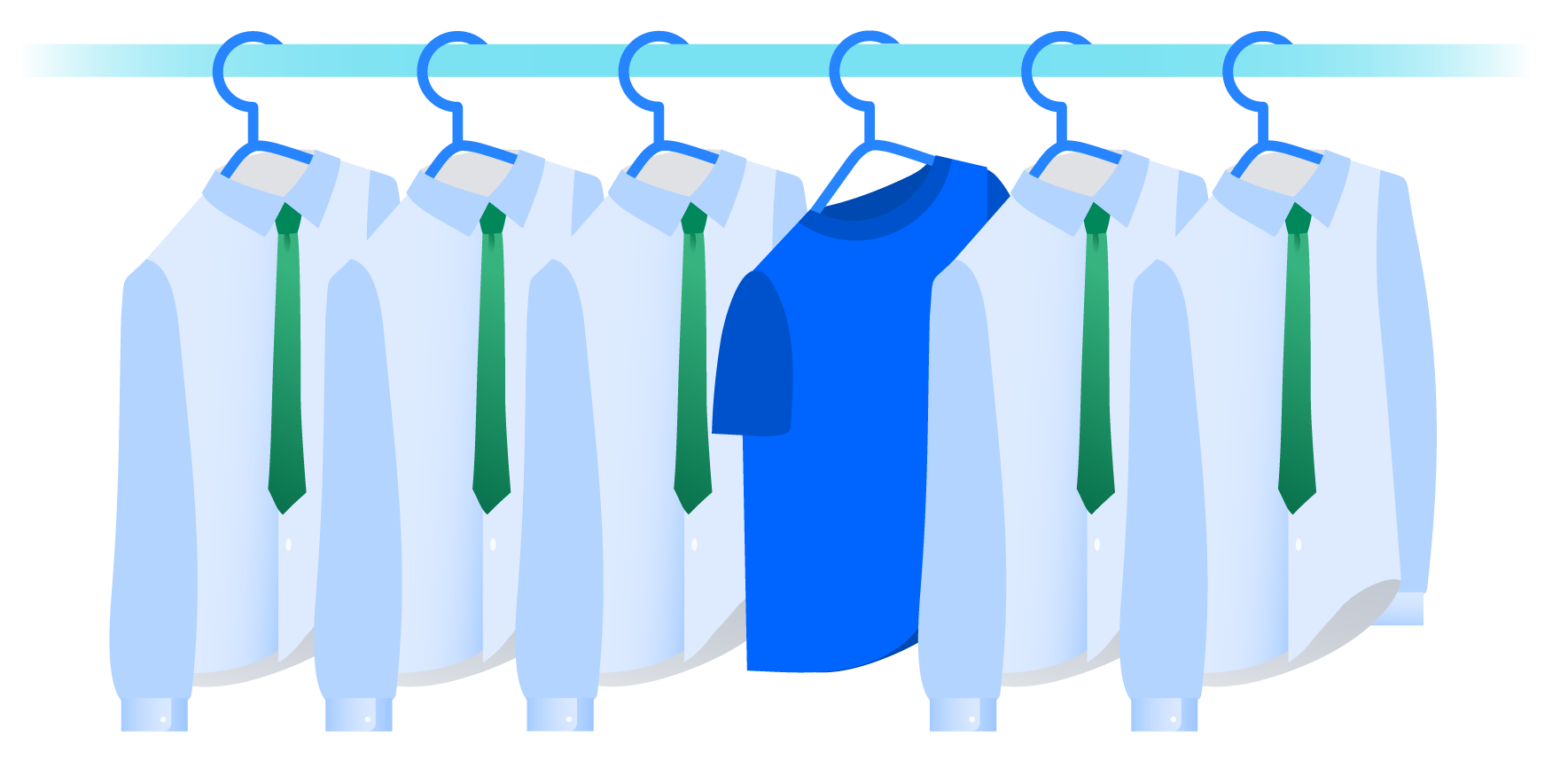Take one look at my title, and you’d think I know what I’m doing when I turn up to work every day.
Over a decade ago I started a company straight out of university with a mate, Scott. We had no prior business experience and no grand plan. Today we have thousands of awesome employees, and millions of people across the planet use our software every day. Surely that kind of success comes from massive expertise and experience, right?
Let me let you in on a secret: most days, I feel like a fraud. Like I don’t really know what I’m doing.
In the early days, customers would call up asking for accounts payable, and I’d think “Are they giving us money, or asking for it?” Interviewing our first HR manager at Atlassian – having never worked anywhere with an HR department – was terrifying. More recently, I attended board meetings where I didn’t know all the acronyms being thrown around, and had to write them down surreptitiously so I could Wikipedia them later.
Turns out this feeling is called impostor syndrome. And it strikes more successful people than you realize. It’s not all bad, though. There’s a lot of good to be harvested from it.
I don’t want to throw a motivational poster type pep-talk at you. Rather, I want to share my own experiences with impostor syndrome and how it can be turned into a hugely positive force.
What is impostor syndrome, anyway?
Have you ever felt way, way out of your depth and kind of guessed-slash-bullshitted your way through because there was no other way out? Petrified that at any moment you’ll be exposed for the fraud you are? Even though everyone around (oddly enough) you acts for all the world like you do indeed deserve to be there? That’s impostor syndrome.
It’s not just the fear of failure, either. There’s also a sense that you’re getting away with something. And if you were to be found out, you wouldn’t actually feel all that upset. You’d think “Yep, well, that’s fair enough, really.”
The thing is, lots and lots of very successful people feel like that all the time.
My life as a professional imposter
I first got tipped off to impostor syndrome as “a thing” at the awards dinner for Ernst & Young’s Entrepreneur of the Year competition. When Atlassian was just 4 years old, with 70 employees, we entered the competition at the advice of our auditors – pretty much the way all good stories start. We were flabbergasted to be selected to represent Australia on the world stage. (I hadn’t even attended the first-round ceremony, because why waste an evening suffocating in a tux when I could be snowboarding with my mates instead?)
I figured I should show up for the World Entrepreneur of the Year dinner, however. So I hired a tux, invited a girl I’d just met (we’ll come back to her in a minute), and off we went. I sat next to a gentleman from Portugal who ran a $4B EU business employing 30,000 people. When I confessed to feeling like at any minute someone was going to figure it all out and send us home to Australia, he told me he felt exactly the same way.
He said all the national winners were probably thinking that same thing, and that what Scott and I should do is “Just keep going – you’re obviously doing something right.”
That was a light bulb moment for me. I thought “Wow! Other people feel like this, too. And apparently, it doesn’t go away with more success.”
Using impostor syndrome as a force for good
Impostor syndrome can strike in our personal lives as well. 10 years ago, while waiting for my flight from Sydney to San Francisco, a beautiful woman from waaaaaaay out of my league came up to me. It turned out she thought I was someone else (so in this case, I actually was an imposter!), but I desperately wanted to keep the conversation going. Taking a page from the “fake it ’till you make it” playbook, I parleyed a case of mistaken identity into a decent first impression and a phone number.
Today, that woman is my wife and we have four amazing children. Still, I wake up most mornings and think she’s going to say “Who are you, and who gave you that side of the bed? Get out!” But she doesn’t. I consider myself lucky, and stretch myself to be a better partner than I otherwise might be. And I think she feels the same way.
Then there was the time I accidentally solved Australia’s energy problems on Twitter. Sort of.
A few months ago, I saw something on Twitter about Tesla saying they could solve South Australia’s power crisis with industrial scale batteries. Without thinking too much (I was late, and I was sleep-deprived thanks to one of the aforementioned amazing children), I fired off some tweets to see if they’d follow through on that.
In so doing, I kicked a pebble off a hill that quickly became an avalanche with me tumbling down in the middle of it. You see, Elon Musk tweeted me back saying they’d have it “installed within 100 days of contract signing, or it’s free”.
That’s when all hell broke loose. In less than 24 hours, every major media outlet in the country was calling on me for my “expert opinion” on energy. Keep in mind that when I tweeted Elon, I couldn’t describe the difference between a 1.5 volt AA battery that goes in my kids’ toys and a 100MwH grid-scale battery that could save South Australia.
I’d gotten myself in way too deep this time to back out. But I’d started something and would be damned if I didn’t see it through, lest the renewable energy movement be set back by my idiocy on Twitter.
I dove into deep-learning mode, absorbing everything I could about industrial scale batteries, storage, renewable energy and our electricity grid. I spoke with every expert I could get a phone number for. By the time things calmed down, South Australia’s battery tender had over 90 bids, and the national conversation has moved from venerating lumps of coal to debating which industrial-scale battery chemistry is the best.
By this time in my life, I knew I was an imposter. And I knew how to use that feeling. I couldn’t get out, but didn’t let myself be paralyzed. Understanding my own impostor syndrome motivated me to turn my fear of looking like an idiot into a force for good.
The beauty of not having an eject button
You might assume successful people never feel like frauds. In fact, the opposite is much more likely to be true.
The most successful people I know don’t question themselves – but they do question their knowledge. They see asking for advice as a way of testing their ideas, which makes those ideas better and helps them learn.
Sometimes it’s actually good to be so deep in a situation that you can’t press the eject button. The trick is to harness those feelings of inadequacy and use them as a positive.
I say “harness” on purpose. It’s not about conquering imposter syndrome. It’s about being aware of it.
In fact, I’m acutely aware of feeling like an imposter right now. I’m talking to you as a pseudo-expert on a feeling I couldn’t even put a name to until recently. Which is kind of the point, isn’t it?
. . .
Watch Mike’s 15-min talk on Impostor Syndrome given at TedX Sydney.

